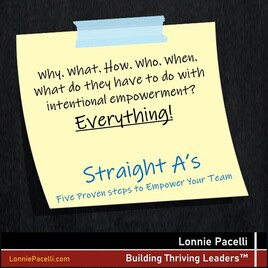 I remember my first position as a manager, selling clothes in a department store to work my way through college. One of my colleagues, who I’ll call Jay, was also a good friend. We ran together, went to movies, and overall had a great time. After I got promoted and became his boss, we still did some things together—but there was persistent tension in our relationship. He didn’t like the fact that I was his boss and would tell me that he worked for my boss, not me. He then became chummy with another guy who was his peer in another department. This tension existed until I graduated from college and left the department store. Once I wasn’t his boss, the tension lifted. That was my first experience with the “them” team. Read more at ProjectManagement.com.
0 Comments
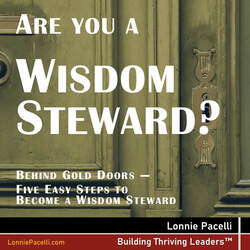 About a year ago, I wrote an article called Becoming a Sustainable Project Manager with an accompanying Sustainable PM Assessment. My hope at the time was that readers would understand the four sustainability drivers: 1. Skills 2. Lifestyle 3. Relationships 4. Stewardship …and develop action plans on how to be more sustainable. To help underscore the importance of being sustainable, here are four stories where, for each person, sustainability wasn’t a priority. Read more at ProjectManagement.com. 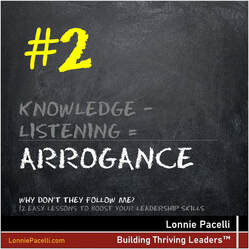 I am a huge fan of 360-feedback evaluations, a tool in which a participant and their leader, peers and followers evaluate them using a series of structured questions. With the 360 evaluations I’ve gone through, the results were presented to me in terms of how I view myself versus how my leader, peers and followers viewed me. My first 360 was part of a five-day leadership offsite where survey participants completed the survey prior to the offsite and the results were given to us at the end of the third day. Prior to handing out the evaluation results, I can remember the offsite facilitator saying, “You’re probably going to see some things that will hurt. Take some time to go through the feedback tonight in your hotel room, then let’s talk tomorrow about what you’ll do with it.” We got the packets with our individual evaluation results. I remember being excited to see the results, expecting to be reaffirmed by how others viewed me as a leader. Then I opened the packet. Read more at ProjectManagement.com. 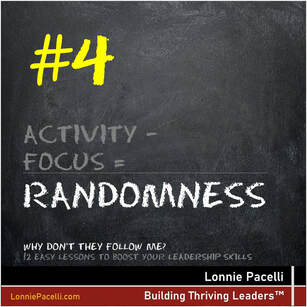 Years back, I hired a person I’ll call Del who came highly regarded with a strong resume. Del went through an interview loop that included one of my peer directors. I got my peer’s feedback—along with a “no hire” recommendation. After talking with my peer, I decided to hire Del anyway. Del made an almost immediate positive impact with the client organization he serviced. Shortly thereafter, though, I started hearing rumblings from Del’s peers within my organization about how he constantly said how busy he was and that he should not have to do some of the things his peers were expected to do. Worse still, Del claimed that he should have special treatment because he was more experienced than his peers. Needless to say, this did not sit well at all with the rest of my organization. Del was very competent in his skills, but the negative impact he had on the rest of the team far outweighed the benefit he provided. I thought back to the discussion with my peer and her no-hire recommendation. She warned me that Del might be disruptive to my organization, which was the basis for her recommendation. The bottom line was that I should have listened to my peer and not hired Del. It wasn’t worth the upheaval in my org. Read more at ProjectManagement.com.
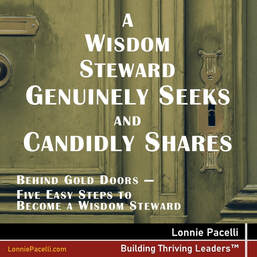 One day, my wife Patty and I were eating lunch when she said, “I’ve been seeing some social media posts about mental load; have you ever heard of it?” “No,” I answered, wondering if I’ve been missing out. She then told me more about what she’s seen and its impact on people. Intrigued by the term and her explanation, I decided to do a bit more research on mental load. Here’s a little of what I learned from healthline.com: Read more at ProjectManagement.com.  One of my favorite family movies is Mary Poppins. My grown kids will still tell you that my favorite part was watching Dick Van Dyke’s character Bert dance with the animated penguins. (Even as I type this, I have a smile on my face just thinking about his facial expressions as he flopped around in his sagging pants.) Aside from Van Dyke’s talent as a dancer, there was something else about Bert’s character that interested me: Bert was a one-man band, chalk artist, chimney sweep, and kite salesperson. The jobs had little in common other than the fact that Bert had skills that enabled him to perform each job. While Bert may have been happy doing each of the jobs, it doesn’t appear on the surface that there was any intentionality to his job choices. Having a wayward approach to career changes worked great in the movie, but it might not work so well in your professional life. Read more at ProjectManagement.com.  So let’s say you went through the 12 Questions to Ask Yourself Before Becoming an Independent Consultant—and you still want to take the plunge. This article will give you the must-do items to complete before opening your doors. It’s common to be excited about getting your consultancy going and landing that first gig—passion is great! But you absolutely need to get a few things in order first. I can’t stress this enough: If you skip over considering the 10 steps below, you are setting yourself up for potentially big problems later. This is a “measure twice, cut once” thing. (I think you get my point by now…) My experience is setting up a U.S. company in the state of Washington. You should use the advisors and other suggestions that are right for your consultancy’s location. Read more at ProjectManagement.com 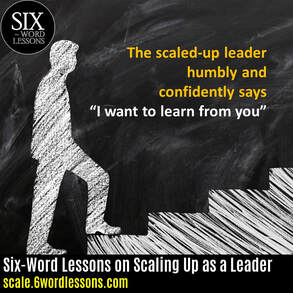 In my four decades as a professional, I’ve worked as a consultant at Accenture, hired consultants at Microsoft, and engaged with many clients while running my own firm. I’ve seen consulting from many different vantage points—some very positive, others not so much. Of all these, I have by far enjoyed working in my own consultancy the most. I’m in no way trying to dismiss Accenture or Microsoft; I’m still on friendly terms with them, and strongly advocate them as employers. But going off on my own worked out best for me. Hanging your own shingle is a bit like a bungee jump: it’s exciting, exhilarating and scary all at the same time. I’ve learned that branching off as an independent consultant isn’t for everyone, and that the most important first step anyone could take is to do some honest introspection on whether being an independent consultant is for him or her. To that end, I have developed 12 questions that I believe are important to ask if you want to be your own consulting boss: Read more at ProjectManagement.com.
Brad was an incredibly bright young executive with a very promising future. Ever since graduating college, he seemed to take on increased responsibilities in his company like a duck to water. He married his college sweetheart, Nancy, right after graduation and has two small children. Brad's talent didn't go unnoticed in the industry, with several competitors approaching Brad about his willingness to join another firm. He steadfastly resisted, that is until the offer of all offers came his way.
Cantata Group, a larger and more prominent competitor to his current company, wined and dined Brad and ultimately offered him a VP position with a higher salary and better benefits. The offer was too good to pass up so Brad talked with Nancy about the job and they both became enamored with how this was going to advance Brad's career and what they would be able to do with the extra money. Brad joyfully accepted Cantata's offer, gave his current company two weeks' notice, and started in his new VP role. Within a year of joining Cantata, he noticed some unexpected side effects of his new position. He was required to be in weekly global executive virtual meetings which could happen at any time of the day or night. He was routinely working 60+ hours a week, missing dinner with Nancy and the kids. He traveled at least once a week, many times to put out fires at clients. His eating habits were horrendous and he wasn't exercising due to his schedule. He began putting on weight. Nancy was frustrated with him not being around and his kids missed their daddy. The stress was unbearable and led to Brad one day grabbing his chest and collapsing during a customer meeting. |
Topics
All
Reprints
Contact Lonnie about article reprints. Please specify article you wish to reprint. Backlist
See Lonnie's Amazon Author Page Archives
April 2024
|
Lonnie Pacelli - Building Thriving Leaders™
Insightful | Creative | Direct Advice to Help Leaders Help Themselves
Keynote Speaker | Board Director | Autism Advocate | Author | Project Management Expert | Microsoft/Accenture Veteran
See his books on Amazon
Insightful | Creative | Direct Advice to Help Leaders Help Themselves
Keynote Speaker | Board Director | Autism Advocate | Author | Project Management Expert | Microsoft/Accenture Veteran
See his books on Amazon
Services |
About
|
© COPYRIGHT 2019. ALL RIGHTS RESERVED.
We are a participant in the Amazon Services LLC Associates Program, an affiliate advertising program designed to provide a means for us to earn fees by linking to Amazon.com and affiliated sites.
|



 RSS Feed
RSS Feed